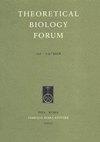Elements of plant physiology in theophrastus' botany.
IF 1.2
4区 生物学
Q4 BIOLOGY
引用次数: 1
Abstract
For thousands of years the plants were considered only as a source of food and medicine, and as ornamental objects. Only from the fifth century BC, some philosophers of Ancient Greece realized that the plants were living organisms but, unfortunately, their works have come to us as fragments that we often know from the biological works of Aristotle. This eminent philosopher and man of science, however, did not give us a complete work on the plants, which he often promised to write. From scattered fragments of his conspicuous biological work, it emerges a concept of nutritive soul that, in the presence of heat and moisture, allows plants to grow and reproduce. The task of writing a comprehensive botanical work was delegated to his first pupil, Theophrastus, who left us two treatises over time translated into the various languages up to the current versions (Enquiry into plants, On the causes of plants). The plant life is described and interpreted on the basis of highly accurate observations. The physiological part of his botany is essentially the nutrition: According to Theophrastus, plants get matter and moisture from the soil through root uptake and process the absorbed substances transforming them into food, thanks to the heat. The processing (pepsis, coction) of matter into the food represents an extraordinary physiological intuition because individual organs of a plant appear to perform its specific transformation. Despite that Theophrastus did not do scientific experiments or use special methods other than the sharpness of his observations, he can be considered the forerunner of a plant physiology that would take rebirth only after two millennia.山芋植物学中的植物生理要素。
几千年来,这种植物只被认为是食物和药物的来源,也是一种装饰品。直到公元前5世纪,一些古希腊哲学家才意识到植物是有生命的有机体,但不幸的是,他们的作品以碎片的形式呈现给我们,我们通常从亚里士多德的生物学著作中了解到。然而,这位著名的哲学家和科学家并没有给我们一本关于植物的完整的著作,他经常答应写这本书。从他引人注目的生物工作的零星碎片中,它出现了一个营养灵魂的概念,在热量和水分的存在下,它允许植物生长和繁殖。他的第一个学生泰奥弗拉斯托斯(Theophrastus)将撰写一部全面的植物学著作的任务委托给了我们,后者留给我们两篇论文,随着时间的推移,被翻译成各种语言,直到现在的版本(《植物探究》和《植物成因》)。植物的生命是根据高度精确的观察来描述和解释的。他的植物学的生理部分本质上是营养:根据Theophrastus的说法,植物通过根吸收从土壤中获取物质和水分,并通过热量将吸收的物质转化为食物。物质转化为食物的过程(消化、合成)代表了一种非凡的生理直觉,因为植物的各个器官似乎都在进行特定的转化。尽管泰奥弗拉斯托斯没有做科学实验,也没有使用特殊的方法,但他可以被认为是一种植物生理学的先驱,这种植物生理学在两千年后才获得新生。
本文章由计算机程序翻译,如有差异,请以英文原文为准。
求助全文
约1分钟内获得全文
求助全文
来源期刊

Theoretical Biology Forum
Agricultural and Biological Sciences-General Agricultural and Biological Sciences
CiteScore
1.10
自引率
0.00%
发文量
0
 求助内容:
求助内容: 应助结果提醒方式:
应助结果提醒方式:


